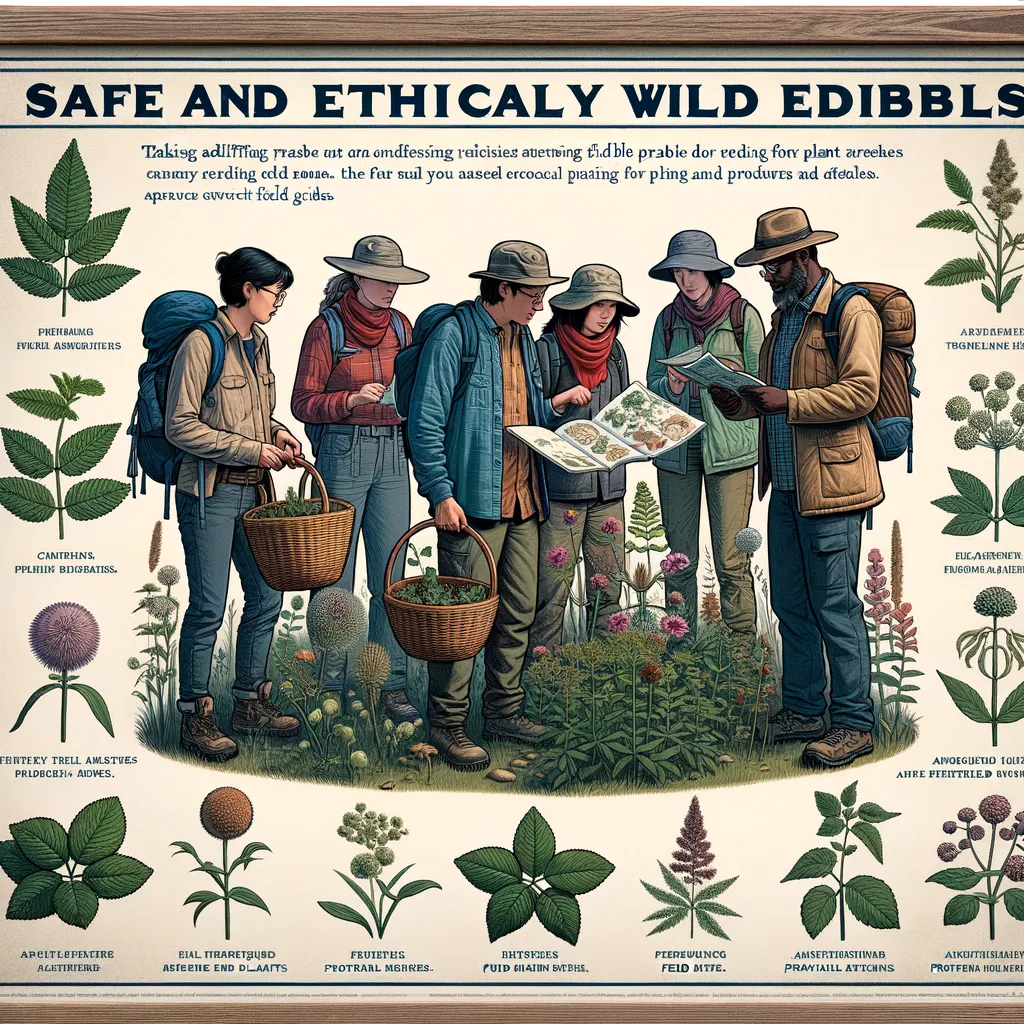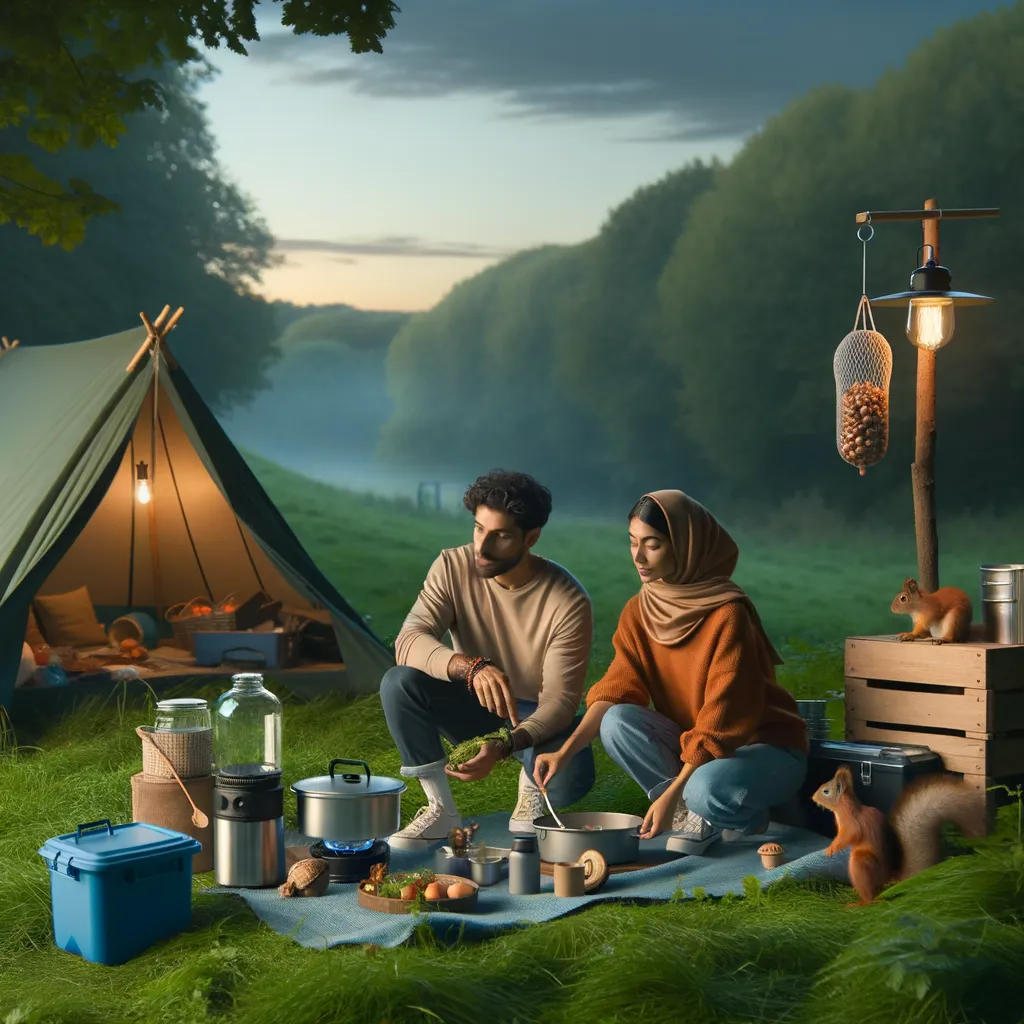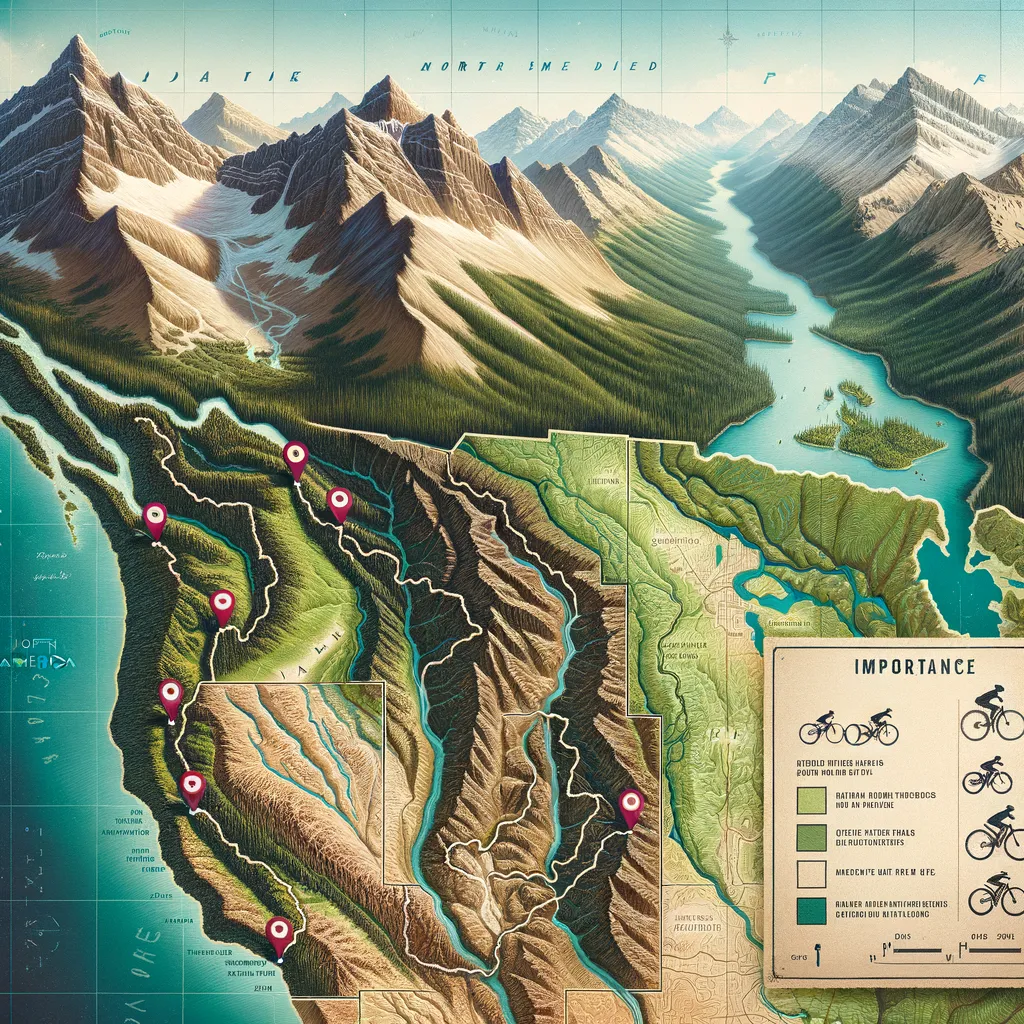Discover the Joy of Foraging: A Parent’s Guide to Wild Edibles
Welcome, eco-conscious parents and guardians! Are you looking to instill a love of nature in your children while teaching them about sustainable living and the bounty our earth provides? Then, you’ve stumbled upon the perfect guide. Today, we’re embarking on an enchanting journey through the world of foraging for wild edibles – an activity that not only promises adventure but also nurtures respect for our environment. So, grab your walking shoes, and let’s dive into the green!
Understanding the Basics of Foraging
Before we set foot outside, it’s crucial to grasp the essence of foraging. Foraging is the age-old practice of searching for and harvesting wild food resources. It is a wonderful way to connect with nature, learn about local ecosystems, and introduce your family to fresh, seasonal foods. However, it demands a responsible approach to ensure safety and sustainability.
Why Forage with Your Family?
- Enhance Environmental Awareness: Foraging can deepen your family’s connection to the natural world, teaching them about ecology and the importance of conservation.
- Promote Healthy Eating: Wild foods are not only free from industrial additives but also often richer in nutrients than their cultivated counterparts.
- Foster Lifelong Skills: Learning to identify and harvest wild edibles equips children with knowledge that can inspire future gardening or even culinary pursuits.
Foraging Safety: A Top Priority
While the allure of wild edibles is undeniable, safety always comes first. Misidentification can lead to accidental poisoning, so it’s vital to educate yourself and your young foragers thoroughly before getting started. Here are key safety tips:
- Start Small: Begin with easily recognizable species and gradually expand your knowledge. Excellent starter plants include dandelion, wild violets, and clover.
- Use Reliable Resources: Invest in reputable foraging guides or apps specific to your region, and consider attending workshops or guided forages.
- Double-Check Identifications: When in doubt, don’t eat it! Always cross-reference multiple sources to confirm a plant’s identity.
- Teach Respectful Foraging: Instill in your children the importance of foraging ethically. This means taking only what you need, never overharvesting, and leaving no trace.
Navigating Legalities and Ethics
Did you know that foraging isn’t permitted everywhere? Public lands and parks have specific rules, and it’s essential to familiarize yourself with them. Always seek permission if you wish to forage on private property. Here’s how to forage ethically and legally:
- Research Local Regulations: Check the guidelines of your local conservation department or park services. Some areas may have restrictions on certain species or require permits.
- Practice Sustainability: Adopt the principle of taking no more than one third of what’s available to ensure plants can regenerate and support wildlife.
- Leave No Trace: Strive to leave the environment as you found it, if not better. This means not damaging habitats or leaving litter behind.
Embarking on the path of foraging with your family is not just about enjoying the “fruits” of your labor; it’s a journey of learning, discovery, and connection. As we wrap up this introduction to foraging for wild edibles, remember that patience and perseverance are your best allies. It takes time to become familiar with the natural world’s vast pantry, but the rewards—nutritionally, ecologically, and spiritually—are boundless.
Stay tuned as we delve deeper into specific wild edibles, seasonal guides, and recipes that will turn your foraged finds into delightful, nutritious meals for your family. The world of foraging is rich and varied, and we’re just getting started. So, keep your curiosity alive, and prepare for many delightful adventures ahead in the world of wild edibles!
https://en.wikipedia.org/wiki/Camping

5 Essential Tips for Parents: Preparing for Wild Edibles Foraging Safely and Ethically
Welcome back to our comprehensive guide designed for eco-conscious parents eager to traverse the enriching path of foraging with their children. Embarking on this journey not only tightens our bond with nature but also sows the seeds of sustainability and ethical living in young hearts. As we delve deeper into the art of foraging for wild edibles, the focus shifts towards preparation – a crucial step to ensure both the safety of your family and the preservation of natural habitats. Let’s explore five indispensable tips that every parent should know before venturing into the wild with their little foragers.
1. Educating Your Family on Foraging Fundamentals
Knowledge is the cornerstone of safe foraging. It’s imperative to educate both yourself and your children on the basics of foraging before stepping into the wild. This includes understanding the local flora and fauna, recognizing which plants are safe to eat, and knowing how to harvest them without causing harm to the plant or its surrounding ecosystem.
- Engage in Interactive Learning: Use field guides, educational apps, and online resources to learn about wild edibles. Turn learning into a captivating game for your children by having them spot and identify different plants using pictures and descriptions.
- Embrace Local Wisdom: Take advantage of local foraging workshops or nature walks led by experienced foragers. This hands-on approach not only strengthens your identification skills but also embeds a deep-seated respect for nature in your family’s ethos.
2. Gearing Up for Foraging Adventures
Proper gear can make or break your foraging experience. Ensuring that your family is well-prepared with the right equipment will keep everyone safe, comfortable, and focused on the adventure at hand.
- Dress Appropriately: Opt for long sleeves and pants to protect against thorns, insects, and the sun. Durable, waterproof boots are a must-have to navigate diverse terrains comfortably.
- Foraging Tools: Prepare a lightweight, durable bag or basket for your finds, and bring along gardening gloves, a small shovel or trowel, and pruning shears for safe and efficient harvesting.
3. Planning for Safety and Emergencies
While foraging is generally a safe activity, preparedness for unexpected situations ensures that your outdoor experiences remain joyful and worry-free.
- First Aid Kit: Always carry a basic first aid kit equipped with supplies to address cuts, allergic reactions, and other minor injuries or ailments.
- Stay Informed: Make it a point to check the weather forecast before heading out and educate your family on basic wilderness safety tips, including what to do if they become lost.
4. Choosing the Right Time and Place
The when and where of foraging are as crucial as the how. To make the most of your foraging excursions, timing and location are key.
- Understand Seasonality: Teach your family about the importance of seasonality in foraging. Each season brings its bounty, so knowing what to look for and when is essential for a fruitful harvest.
- Selecting Foraging Spots: Research and scout out the best locations in advance. Look for areas away from busy roads and industrial sites to avoid pollution and pesticides. Public lands may welcome foragers, but always double-check local regulations.
5. Fostering a Foraging Ethic
Foraging offers a unique opportunity to instill values of respect and responsibility towards nature. Teaching your children the ethics of foraging is paramount.
- Harvest with Care: Educate your family to harvest in a manner that allows plants to regenerate. This often means taking only a small part of the plant and leaving enough behind for wildlife and other foragers.
- Leave No Trace: Emphasize the importance of leaving the environment undisturbed. This includes packing out all trash, minimizing disturbance to wildlife, and walking on established paths whenever possible.
Equipped with these preparatory tips, you and your family are well on your way to becoming ethical, informed, and joyful foragers. Remember, the journey into foraging with your family is not just about the wild edibles you gather but also about the precious memories you create and the invaluable lessons in
Find more tips on the Outoors. Find camping spots
Disclaimer
The articles available via our website provide general information only and we strongly urge readers to exercise caution and conduct their own thorough research and fact-checking. The information presented should not be taken as absolute truth, and, to the maximum extent permitted by law, we will not be held liable for any inaccuracies or errors in the content. It is essential for individuals to independently verify and validate the information before making any decisions or taking any actions based on the articles.




